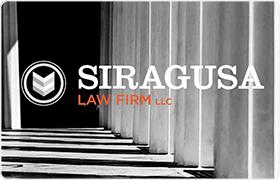Hillside Divorce & Family Law Lawyer, New Jersey
Sponsored Law Firm
-
 x
x

Click For More Info:
-
Siragusa Law Firm LLC
678 Route 202/206 Building 5, Suite 5 Bridgewater, NJ 08807» view mapDivorce & Family Law Creative Thinking. Exceptional Results.
At Siragusa Law Firm, we take our responsibility seriously. We are passionate about helping you, making sure to guide you through whatever legal matter you face.
908-218-1100
Gail Jean Hann Mitchell
Alimony & Spousal Support, Divorce, Land Use & Zoning, Prenuptial Agreements
Status: In Good Standing
FREE CONSULTATION
CONTACTMarsha Marie Moore
Wills & Probate, Family Law, Corporate, Business Organization
Status: In Good Standing
Sam D. Han
Estate Planning, Family Law, Intellectual Property, Landlord-Tenant
Status: In Good Standing
Robert S. Dorkin
Divorce & Family Law, Alimony & Spousal Support, Divorce, Child Support
Status: In Good Standing Licensed: 47 Years
FREE CONSULTATION
CONTACTFred M Pugliese
Divorce & Family Law, Accident & Injury, Real Estate, Employment
Status: In Good Standing
FREE CONSULTATION
CONTACT Lynette Siragusa Bridgewater, NJ
Lynette Siragusa Bridgewater, NJ Practice AreasExpertise
Practice AreasExpertise
